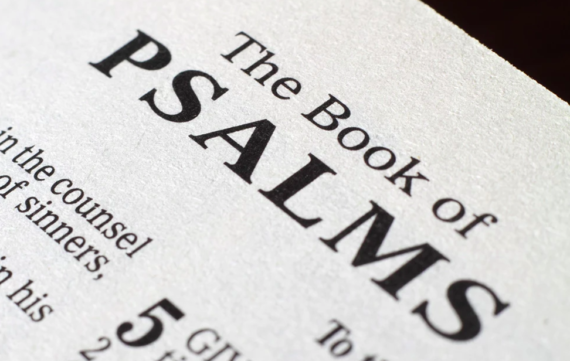This is an unusual psalm. Its form might be called a “lawsuit parable.” It is more like something from the prophets than like the usual psalm forms.
There are several theories regarding the background of the psalm. One possibility is the ancient practice of considering rulers to be in some sense divine (2 Sam 7:14). Another is the belief that each nation had a divinely appointed angel responsible for it (Eph 3:10; Dan 10:13). Another suggested possibility is that the psalm might have been modelled on some polytheistic story that was well known at one time. Just as we might retell the “Jack and the beanstalk” story to illustrate a point (without implying that we believe that story to be true), so this writer might be using well-known mythical material.
Whatever the conceptual background assumed here, the intended effect of the psalm is that those hearing it might dedicate themselves to seek justice.






Partiality to the wicked
In seeking justice, we must be aware of two unfortunate natural tendencies. The first of these is the tendency to show partiality to the wicked.
God has taken his place in the divine council; in the midst of the gods he holds judgment: 2 “How long will you judge unjustly and show partiality to the wicked? (1-2)
Why is it that those in authority are so often tempted to side with the wicked? In some cases, this is done out of fear. Those supposedly in authority might fear that the wicked could successfully attack them. In other cases, siding with the wicked is done in a misguided attempt at gaining peace. Those with an historical bent might think of Neville Chamberlain’s foolish agreement with Hitler. In some cases, those in authority cooperate with the wicked because they hope for material gain. But fundamentally, all these boil down to the same thing. We give in to evil, we fail to put justice first, because we ourselves are flawed and sinful.
Attacking the weak
The second tendency to beware of is the tendency to ignore or even attack those who are socially weak.
Give justice to the weak and the fatherless; maintain the right of the afflicted and the destitute. 4 Rescue the weak and the needy; deliver them from the hand of the wicked.” (3-4)
Those who are socially weak and voiceless will be attacked more often than anyone strong. The weak need the help of the authorities more often, because the unjust see them as easy targets. The poor are often socially weak and voiceless. But there are others, in addition to the poor, who are socially weak. The Jews in Germany were not poor but were rendered voiceless by prejudice. This often happens to minority groups and immigrants. Where poverty and despised status go together, people are very vulnerable. Children are greatly at risk, especially children without parents or with neglectful parents. The treatment given to unborn and newborn children in the Western world, and increasingly to the aged, is unthinkably unjust.
Yet even people who claim to be Christians do nothing. Even in nations where we have means of opposing injustice, many Christians do nothing and some even support those who desire to increase these unspeakable injustices.
All will face judgement
We must remind those in authority that we will all face death someday.
I said, “You are gods, sons of the Most High, all of you; 7 nevertheless, like men you shall die, and fall like any prince.” (6-7)
Too much of what we do is done for the praise of men rather than for the approval of God (John 12:42-43). In Brazil it used to be that the president could only serve one term. The theory was that the president would then have no motive to do things with an eye toward re-election. He would just do what is right, not what would get him re-elected. Yet somehow, they found, men would still govern to please the crowd. Popularity often trumps justice.
Those in authority need to remember that death comes to kings and presidents, teachers and parents just as to all of us. But sadly, where people do not believe in a final judgment, this fact does not decrease unjust practices. On several occasions, it appears that our leaders have said to themselves, “I’ll be long gone before they realize how they have been cheated.” But where death is seen as involving final judgement, that is another matter (James 5:4; Mt 25:42-43).
Trust leads to action
We ultimately trust in the judgment of God. Our treatment of this psalm would not be complete without some comment on the final verse.
Arise, O God, judge the earth; for you shall inherit all the nations! (8)
We should seek to be just in any sphere of life where we hold a degree of authority. We should call on those with more authority to act with greater justice. But ultimately our trust is not in the effectiveness of our actions. We can do a little, but it is very little. The fact that it is little is no excuse to do nothing. The fact that we can do little through legitimate means is no excuse for taking up illegitimate means. We must do the little we can, and trust in God for the rest. We must call on him to arise and deal with all the injustice we cannot overcome. But we dare not ask him to correct the big injustices of the world while we allow injustices that we could correct – in our homes, schools, and workplaces.
God will ultimately bring the major rulers of this world to justice. We can safely leave that in his hands. Let us do so. Then we will have more time to deal with the instances of injustice occurring in our little sphere of influence.

